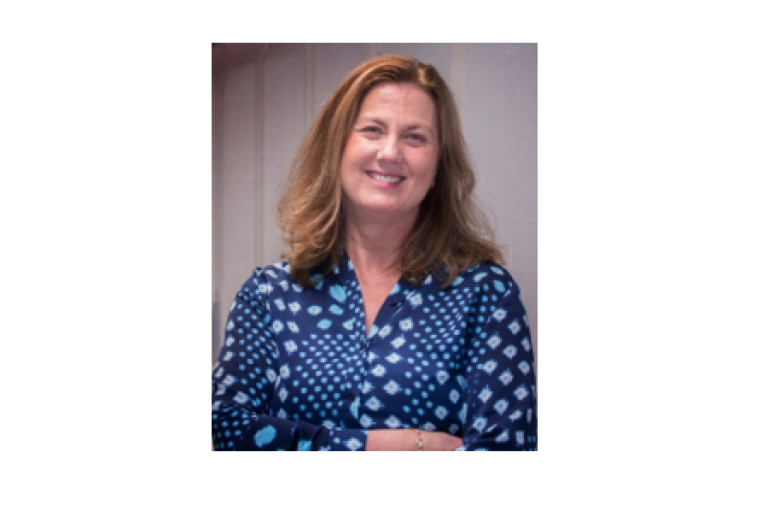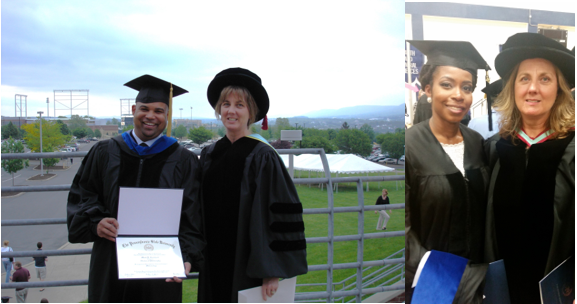In Memory, Jenni Evans
- Author(s):
- By Sarah Jones, President, Deutscher Wetterdienst (DWD), and Permanent Representative of Germany to the WMO, and Arlene Laing, Coordinating Director, Caribbean Meteorological Organization, and Permanent Representative of the British Caribbean Territories

The life and work of Prof. Jenni Evans provides us with a shining example of how to realize the WMO aim of turning science into action for the global good. Jenni first engaged with the work of the WMO as an Early Career Scientist and continued and strengthened that engagement throughout her career.
Jenni’s mathematical ability brought her to meteorology. She graduated from Monash University, Australia, with a B.Sc. (Hons) and a Ph.D. in applied mathematics. After two years at the Commonwealth Scientific and Industrial Research Organisation (CSIRO) Division of Atmospheric Research in Melbourne, she moved to The Pennsylvania State University, U.S.A., where she became a tenured full professor in the Department of Meteorology and Earth and Environmental Systems Institute in 2005. She took on leadership positions at the University, culminating in her directing the Institute for Computational and Data Sciences until her retirement in 2024. Jenni was a visiting scientist at the Naval Postgraduate School, U.S.A. and the Bureau of Meteorology, Australia. She advised the Florida Commission for Hurricane Loss Projection Methodology and was the centennial president of the American Meteorological Society.
As a world-leading researcher in tropical cyclones Jenni was passionate about increasing our knowledge of the processes and properties of tropical weather and climate. Her portfolio covers highly idealized numerical experiments, composite analysis of real events, diagnosis of operational ensemble prediction systems, applying machine learning and new statistical techniques, analysis and downscaling of climate model simulations, satellite data analysis, planning and execution of field campaigns, and much more. Through her work we know more about how tropical cyclones move, why they intensify, what determines their structure, what happens when they move poleward and transform into extratropical cyclones, how well they are predicted in operational forecast models, and how they are impacted by climate change.
Jenni was never content, however, with the gain in knowledge alone. Early in her career she recognized the key importance of connecting research and operations. She worked closely with forecasters in Australia, Canada, the Caribbean and the U.S. and set up connections between them and her research team. This led to the development of diagnostic tools for operational forecasting, such as the cyclone phase space developed with one of her doctoral students, Bob Hart. Jenni had the instinct to develop trusting relationships in the effort to transfer knowledge between researchers and forecasters in the interests of public safety.
Jenni was a mentor and collaborator of Caribbean scientists as well, focusing on research that mattered to their region, including tropical cyclones, subtropical storms and African easterly waves. Two of her doctoral students, Mark Guishard and Holly Hamilton, went on to become Directors of National Meteorological Services in the region. She also studied the health impacts of tropical cyclone activity in the Caribbean, an illustration of her interdisciplinary outlook. Jenni co-authored, with a Caribbean colleague, the peer-reviewed, online textbook, Introduction to Tropical Meteorology, which was developed with the support of the UCAR/COMET programme and used globally for education and training in tropical meteorology.

Jenni was a first-class educator. She taught a wide variety of courses, continually developed content and teaching methods and was a skilled and committed mentor of graduate students. She set high standards as an adviser, while guiding and supporting her students to help them achieve their full potential. Jenni was immensely proud of the achievements of all of her graduate students and enjoyed keeping in touch with them as their careers developed.
Through her scientific excellence and her commitment to science for services Jenni had a major influence on the work of the WMO. She contributed to almost all meetings of the International Working Group on Tropical Cyclones from the early nineties until the 2014 meeting that she co-chaired. This influential WMO forum brings researchers and operational meteorologists together to assess the operational needs and co-design future research activities. Jenni made essential contributions to WMO/WWRP/THORPEX through the T-PARC field campaign and by developing methods to use the THORPEX Interactive Grand Global Ensemble (TIGGE) data. She participated in major WMO meetings, in particular the World Weather Open Science Conference in 2014 and the Open Science Summit in 2017. Jenni pushed for early career scientists to be given leading roles in these activities, both to support their career development and to give established scientists new ideas and show them new ways of working. She was an excellent role model for women in science and a strong advocate for the importance of promoting diversity.
All facets of Jenni’s outstanding career are key elements for advancing international collaboration in weather, water and climate. Jenni spent nearly 40 years working internationally with a strong vision for the future, developing and strengthening partnerships, promoting interdisciplinarity, and bringing talented young people into our community. If she saw something that was not working well, she spoke out and tried to fix it. As a marathon runner she was very clear about her aims and persisted even if the going was tough. As a person Jenni was warm, forthright, caring, committed, reliable, respectful and full of humor. Jenni’s husband, Bruce, and all her family in Australia were of great importance to her; they gave her the foundation and the strength to achieve as much as she did. She is deeply missed by her colleagues, friends and family.


